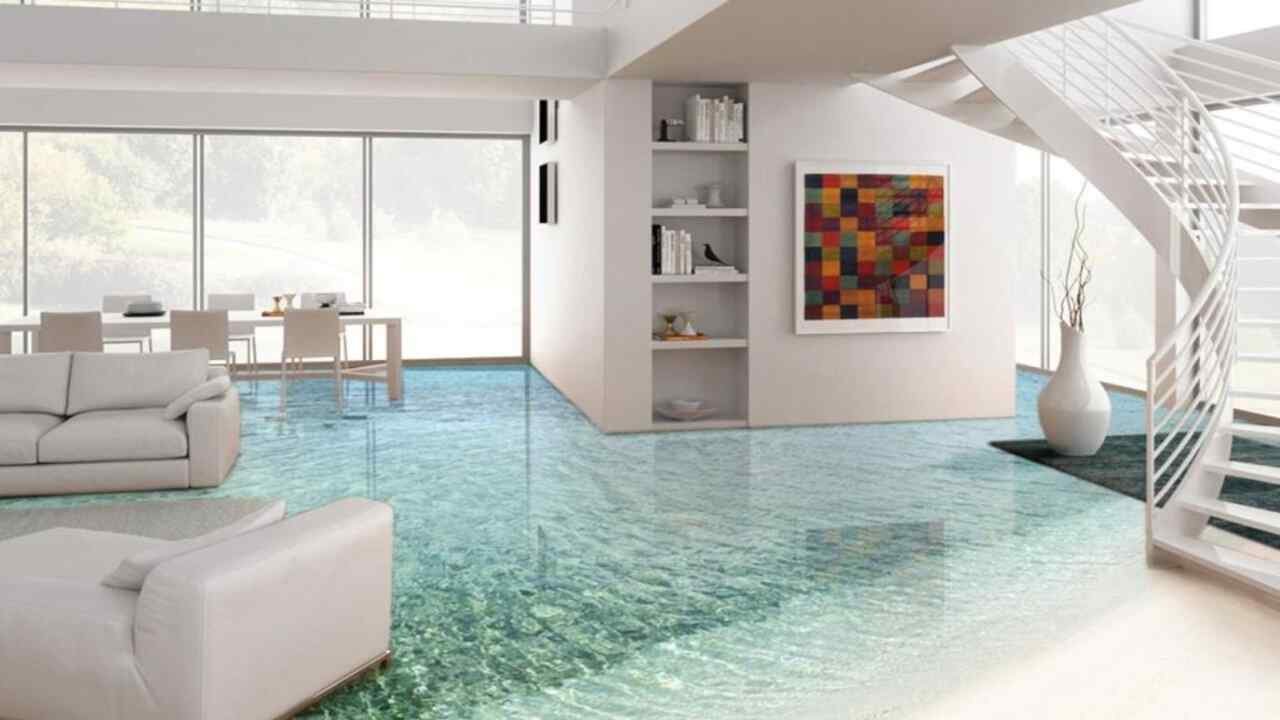What are epoxy floors?
When we talk about epoxy, there are two concepts: an epoxy floor and the other is an epoxy floor coating, there is a difference in thickness between the two concepts, we can also recognize epoxy floors as a resin floor that contains epoxy systems from a mixture of polymer resins and solid materials, and this type of flooring is related to many The details that we will clarify through the following article on the Specialized Trading and Contracting website.
What is the purpose of epoxy floors?
Epoxy coatings can extend the life of your floor and provide a great look.
Unprotected concrete floors can be stained or discolored with oil liquids and can be damaged by the corrosive effects of ice and dissolved chemicals such as rock salt.
Oil and liquids cannot penetrate the epoxy floor surface because it gives a strong, lasting and dense finish that prevents stains and smudging.
What are the types of epoxy floors?
- Self-leveling epoxy floors.
- Epoxy veneer floors.
- Epoxy mortar floors.
- Quartz filled epoxy floors.
- Anti-static epoxy floors.
1- Self-leveling epoxy floors
Self-leveling or self-leveling epoxy is used to apply over cracked, damaged, old or even new concrete floors to make it durable, smooth and with a flat surface.
2- YAT epoxy mortar floors
Epoxy grout flooring includes 100% solid epoxy and graded sand or quartz. Considered the toughest epoxy flooring system out there, epoxy grout floors are ideal for areas that need a floor that has great resistance to chemicals.
It can withstand a great deal of impacts, it can also be used to repair cracks before laying another epoxy floor, this type of flooring is ideal for warehouses, restaurants, commercial kitchens and mechanical spaces.
3- Anti-static epoxy floors
Electrostatic charges (ESD) can be dangerous in many work areas, to overcome any such hazards in these places antistatic epoxy floors can be used.
It is a highly preferred solution for areas containing flammable materials, It is ideal for areas using flammable gases or liquids that present an ignition risk, It is used for chemical or electronic drug manufacturing facilities or healthcare facilities.
What are the uses of epoxy floors?
Epoxy floor coatings are generally used for commercial and industrial floors.
Epoxy can be used to make a beautiful entrance to the office, hotel lobby and fireproof warehouse floor.
Metal cans and bowls are often treated with an epoxy coating to prevent rust, especially when used to package acidic foods like tomatoes.
Epoxy can be used as a floor coating in industrial or commercial applications.
Epoxy floors can be used in aircraft hangars, manufacturing facilities, distribution facilities, garages, residential and commercial buildings, factories, laboratories, retail stores, hospitals, showrooms and theaters, restaurant kitchens, cinemas, shopping malls, schools, sports facilities, and game halls sports,
And so on, you can also use it in private living rooms, kitchens or other rooms.
What are the advantages of epoxy floors
Epoxy floors offer several advantages over other conventional coatings applied to concrete:
- Epoxy coating creates a glossy surface that adds an attractive touch to the décor of the space in which it is located.
- Provides a durable and sturdy surface that is able to withstand heavy and constant movement.
- It is considered an environmentally friendly solution.
- Easy to clean and resists oil stains.
- Mixes with paints and colors to hide cracks.
- Epoxy floors provide safety by creating slip and heat resistant surfaces on concrete floors.
- Appearance: When you use this material to paint the floors, you can give the place a shiny and wonderful appearance as well, and this place becomes easy to clean and get rid of any substance that falls on it, whether it is a chemical substance, oils, or something else.
- So it is always the best option, as this place suffers from car oils dripping on the cement floors, and then these oils stick to it and are difficult to clean permanently, but when you use this wonderful material, it becomes easier.
- With the development of the uses of this material, it became possible to place different three-dimensional graphics under it, so the appearance becomes more beautiful and wonderful, and this idea has become one of the most beautiful decoration ideas.
- Price: The price of this material is one of the advantages and also among the disadvantages, the prices of this material in foreign countries such as the United States of America are very cheap, so they use it as an alternative to ceramics, and by comparing the prices of floors coated with this material and the prices of floors as an alternative to epoxy floors, marble, wood or even Ceramics will have the lowest price among them.
- But the situation is completely different in Egypt, as its prices are very high, and this is due to the fact that this material is completely imported from abroad, and the number of workers with this material in Egypt is very few, and this is also one of the reasons for its high prices in Egypt.
- When compared to the price of ceramic, marble or wood, it will be much higher than it, but it is supposed to be an alternative to ceramic, that is, it is supposed to be lower than the price of ceramic, but what happens is the opposite, it is possible that its prices are closer to marble or porcelain.
- Resistance: This material has a very strong resistance level, it is able to resist oils, gasoline and many other chemicals, and it is also resistant to high temperatures.
What are the disadvantages of epoxy floors?
Working the concrete floor before applying the epoxy is difficult, it must be clean and free of any oils or grease before applying the epoxy which requires a lot of effort and time.
While using epoxy, adjusting colors or designs can be difficult and expensive work, and repairing and removing paint is a laborious process.
Epoxy floors require that they be installed precisely to specifications, if not done correctly, the floors will not perform as they should.


Share
- Comments